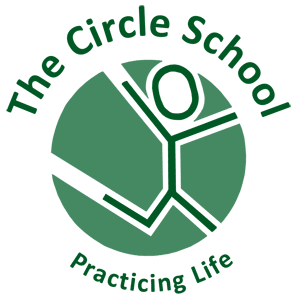Tomorrow we Americans elect a president. Two days ago we Circle Schoolers hosted a group of families and educators here, telling them about life in our democratic school. Now I’m thinking about the connection between Washington gridlock and American schools.
About American national politics, two observations are widely agreed: hyper-partisan politics are crippling American government, and the degree of partisanship has increased in recent times. Primary elections favor the most strident candidates. Once elected, compromise, collaboration, and cooperation are mostly off-limits. Confrontation displaces innovation. Worse still, the system is self-reinforcing, creating a downward spiral of dysfunctional government as parties and partisans seek to block the opponent rather than govern the nation. Both parties are guilty.
At least two factors contribute: first, primary elections tend to draw the most partisan voters, favoring the most partisan candidates. Second, voting district boundaries have been ridiculously contorted to create electoral districts favoring whichever party is in power at decennial redistricting time. The result is that elections serve the self-preservation interests of the two major political parties, sometimes contrary to the collective interests of Americans and good government.
Is school another contributing factor, conditioning children and teens for something much smaller than American ideals? More about that in a moment.
How can we stop the downward spiral, reduce excessive partisanship, and promote practical wisdom in public policy making? Several possibilities have been suggested, and some tried. Putting an end to gerrymandered voting districts would help; California may be showing the way with its non-partisan redistricting commission. Open primaries could help, in which all voters, including independents, can vote in any party’s primary election; but could create new problems, and constitutional issues have yet to be resolved. “Sore loser laws” prevent candidates who lose in the primary election from running in the general election; repeal of such laws, which protect the two major parties from pesky third-party candidates, might help by allowing non-partisan and independent candidates to run without having to pass through the ideological purity filter of primary elections.
Those ideas are all out there in public debate, but here’s one that is not: turn schools into democratic societies. Immerse children and teenagers in public discourse, law-making, and government by consent of the governed. Empower a school legislature as the sole authority for creating school rules. Empower a school court system run by students and staff together, to administer justice. Empower an executive body of students and staff, responsible for managing budget, campus, employment, and day-to-day operation of the school. Demand that students and staff together be responsible for governing, accountable for lawful citizenship, and mindful of the diverse community around them.
What sort of governance and society do most students experience in school today? In the classroom, the teacher makes and enforces the rules. In the school, the principal is the ultimate authority. We could call this aristocracy: rule by the elite class of teachers and administrators. But students could be forgiven for calling it dictatorship or totalitarianism, both within the classroom and within the school. Thus we condition children to a model of leadership and governance in which democracy and collaborative policy making are exceptions, not the norm. We condition students to a disempowering system in which the governed have no right of participation, and thus diminished duty and incentive to cooperate.
Doesn’t this strike you as an odd way to prepare children for life in democratic America? Wouldn’t it be more satisfying for everyone if schools honored principles of American democracy and the human rights we say are endowed from birth: life, liberty, and pursuit of happiness?
Immersed for 12 years in democratic school society, students would internalize the ideals and practice of American government and citizenship. Orderly public discourse and collaboration with others on matters of policy and law would become second nature.
I know this because we see it daily here at The Circle School. I wish the option and opportunity of democratic schooling were available to more families and students.
Is it the fate of democratic republics to harden into government gridlock for want of collaboration and cooperation? I don’t think so. As many others have done, I’m drawing a line from schooling to governing, from student to citizen. Let’s make schools a truer microcosm of the society we hope to live in!
-Jim Rietmulder

Trackbacks/Pingbacks